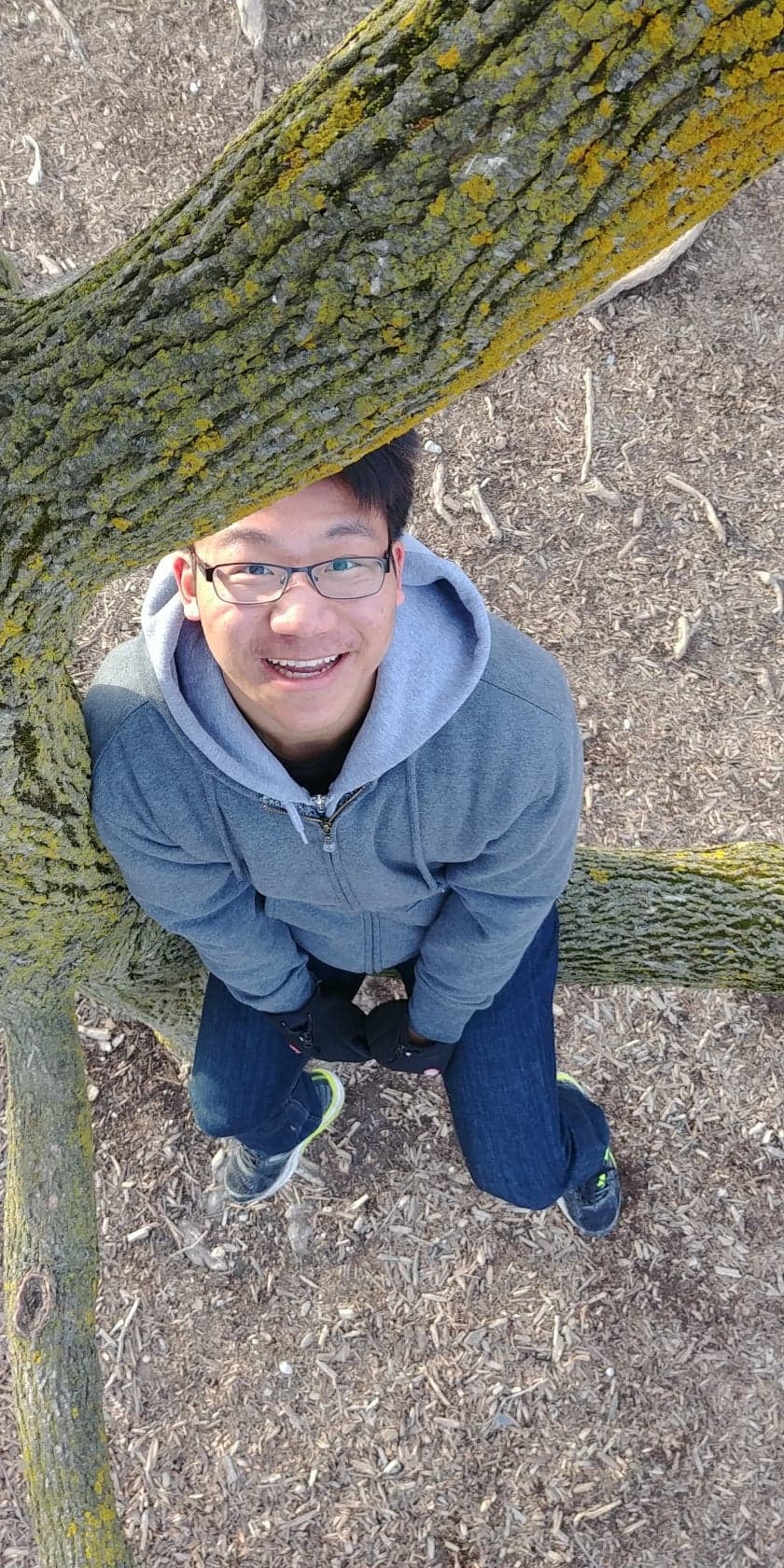Hello! I’m Ben(jamin) Ju and I was a mentor for the CFM class of 2018. I just completed my 2A term and was working in Waterloo for my second co-op during winter 2019. I was a Blockchain Developer for a start-up in downtown Toronto called NxM Labs and I’m currently working as an Investment Developer at Equitable Life in Waterloo.

I chose to become a mentor because of my own mentor in first-year, Kinton. He was a great help throughout my whole first year at Waterloo, co-op especially. Personally, I enjoy helping and meeting new people so I signed up to be a mentor. In addition, CFM provides a tight-knit community which the mentorship program contributes to and I wanted to do my own part.
My own mentor group consisted of 6 first-years, later 7. I was in a unique situation where Kinton asked me to help him with his own mentee group due to work circumstances, so I had another 5, later 6 mentees. Doing simple math, I had a total of 11, later 13 mentees. Though this sounds like a lot, the workload was pretty light.
Being a second year, I was on campus for the fall term and present for the first CFM social. At the event, I got to meet many, if not all, of the first years. An awesome part about being a mentor is the first years choose who they want their mentor to be. This means that whoever selects you as a mentor and gets matched correctly already likes the kind of person you are. This made getting along with my personal group of mentees very easy. In addition, my own cohort of CFM’s created a group chat called ‘Ask a CFM’ where first years could ask questions to several upper-year CFM students, providing another platform for help.
As a mentor, organizing events for your mentees is completely optional. I personally organized 3 events, spent time with my mentees outside of these events, and helped them during the co-op process. The three events I organized were a bubble tea-making session. The second was a hotpot dinner. The third was a coop application power session. One particular thing that surprised me is the difficulty of getting people to come out to an event, an issue that clubs also face. Most, if not all, mentees came to the first event where we met everyone and had a get-to-know-you chat. Afterward, attendance greatly dropped, and it was always a struggle to get a suitable amount of people to attend my events.
My advice for future mentors would be: To be a good mentor, answer questions when your mentees ask you. To be a great mentor, give the answers to the questions you had as a mentee and regularly hint that you’re always open to questions.
As for mentees, talk to your mentors, that’s what they’re there for. Otherwise, you can talk to the other mentors and ask them all the same questions.
Becoming a Mentor
Becoming a mentor is a simple, but tedious task. During the winter term, an email gets sent out asking CFM students to apply to become a mentor for the following fall term. The application is simple and the only requirement is to be genuine in your application and put in a reasonable amount of effort. Afterward, an online course is required to be completed which one fills out various quizzes based on leadership-related content. Lastly, an in-person class is required to be taken to become a fully-fledged mentor.
My own ideal mentor has many traits, many of which I do not possess, but strive to aim for. The first attribute would be competence. It is important for the mentor to be giving the correct information in the first place. The second is responsiveness. Knowing the impossibility of always responding to questions immediately, checking messages once a day should be the bottom line. The third is fun and positivity. I find being able to cheer someone else up and have a overall fun personality is important for mentors. The fourth is blunt honesty. I find honestly an extremely important trait to have, in both giving advice and admitting to not knowing the answer. It gives off a clear intention of trying to help with nothing to hide. The last is being proactive. I find many mentors give off the “I will help you if you ask” vibe. I find being proactive is such a strong tool to build connections. Everyone might not act the way you would like, some straight up ignore you, however, it is still important to be proactive in your approaches so mentees find you more dependable and become more likely to come to you for their issues.
Overall, I find mentorship an amazing education practice. CFM mentorship gives you a great experience of what it is like to be a mentor to others. I’ve learned a lot of things in this role and realized that a true mentor, is someone who changes an individual’s life for the better. The current accomplishments of the CFM mentorship program are getting new CFM students used to the entirely new environment and help them adapt to the courses and the struggles of coop, all of which, I find amazing. I hope in the future, it will reach an even higher level of influence.